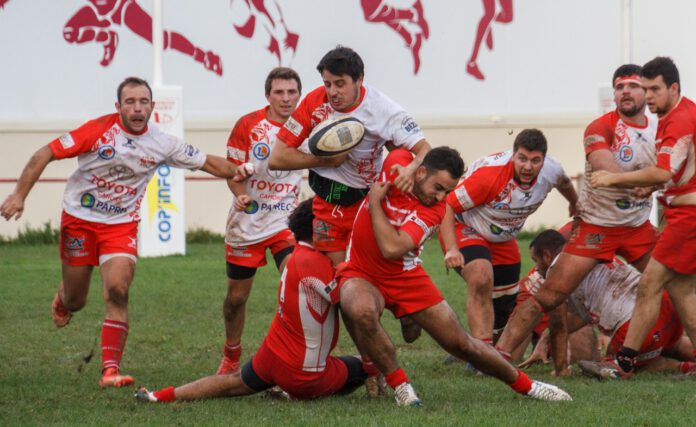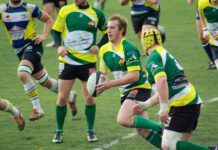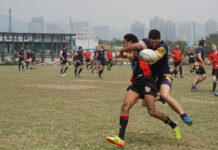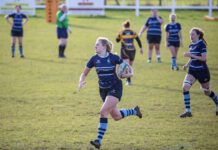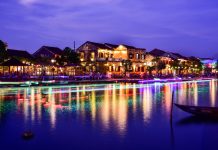The highlight of the ARU season is the annual Army Navy Match held at Twickenham. The first of these matches took place in 1878 at the Kennington Oval, but it was not until 1907 that the match became an annual fixture as part of the Inter-Service Competition. In 1919, an Inter-Service Championship was arranged by the Army Rugby Union, which included Service teams from Australia, Canada, New Zealand and South Africa, as well as a Royal Air Force team and a British Army team playing under the name “Mother Country”. The Mother Country and New Zealand Army reached the final at Twickenham, with New Zealand winning the encounter to lift the King’s Cup. In 1920 the Army–Navy competition was expanded to included the Royal Air Force, the same year that CSM C. W. Jones (Welch Regiment) was to become the first “other rank” to be picked to represent the army.
Between the wars (1920–39) the ARU arranged matches against the French Army, the last of which was played shortly before the Nazi German invasion of France in 1940. The period also saw Army players being selected for British Lions teams. In 1931 the Army Rugby Union Referees Society (ARURS) was formed and continues to provide professional refereeing for all games.
Although the activities of the ARU were curtailed during the Second World War (1939–45), as they had been during the First World War (1914–18), a series of Service International matches were played around the country by teams drawn from rugby playing servicemen; these games drew large crowds and helped to maintain the nation’s morale through the dark days of the war. An international team was formed shortly after the end of World War II, known as the British Empire Forces, who played a series of games against France. Although made up of internationals, with some from the professional code of rugby league, no caps were awarded to the Empire players in these matches, although the French Union recognisied their players with caps.
After the war first class rugby union players brought in through National Service dominated army rugby. During the period 1948–62 more men played for the Army XV than in any other previous or subsequent era. It meant that thirty Army players were selected to represent their countries and from among those selected; Matthews, Hall, Cameron, Scotland, Mike Campbell-Lamerton and Fisher were given the added privilege of captaining their respective national teams. Also on a national front the ARU can boast of the fact that it has had appointed from its ranks Presidents for the English and Scottish RFUs. They were: Major General BA Hill CB, DSO (English RFU 1937–39), Colonel BC Hartley CB, OBE (English RFU 1947–48), Major General RGS Hobbs CB, DSO, OBE (English RFU 1961–62), Brigadier FH Coutts CBE, DL (Scottish RFU 1977–78), Brigadier DW Shuttleworth OBE, ADC (English RFU 1985–86)
A British Army Germany rugby union team team regularly plays games against emerging nations like Belgium, Denmark, Netherlands, Germany and Luxembourg. In the last few years the operational tempo of Army units on British Army Germany have seen these fixtures reduced.


